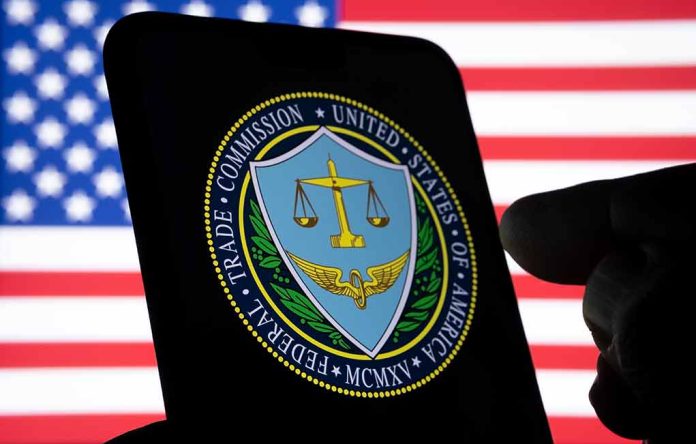
Payment processor Paddle will pay $5 million for knowingly helping foreign scammers defraud American consumers through fake virus alerts and unauthorized subscription charges targeting elderly victims.
Key Takeaways
- Paddle processed over $37 million in payments for tech support scams that used fake virus alerts to trick consumers into buying unnecessary software.
- The FTC settlement bans Paddle from processing payments for tech support companies using telemarketing or security pop-up alerts.
- Despite high complaint rates and internal awareness of fraud, Paddle continued processing payments and even sought revenue-sharing deals with high-risk processors.
- The case represents a shift in accountability, with payment processors now being held responsible for preventing fraudulent transactions.
- The settlement includes $5 million for consumer refunds and strict requirements for future payment processing practices.
Payment Processor Enabled Foreign Scam Operations
The Federal Trade Commission has taken significant action against UK-based payment processor Paddle for its role in facilitating tech support scams targeting American consumers. According to the FTC complaint, Paddle processed millions in payments for foreign-based tech support operations using deceptive tactics to frighten consumers into purchasing unnecessary software and services. These schemes displayed fake virus alerts and security pop-ups impersonating legitimate companies like Microsoft and McAfee, deliberately targeting older and vulnerable Americans who were tricked into believing their computers were infected.
“Paddle provided foreign-based tech-support schemes with access to the U.S. payment system, allowing these companies to harm consumers,” said Christopher Mufarrige, Director of the FTC’s Bureau of Consumer Protection.
Evidence of Deliberate Misconduct
The FTC’s investigation revealed damning evidence that Paddle was fully aware of the fraudulent nature of its clients’ operations yet continued processing payments. For PC Vark, one of the scam operators, Paddle processed $12.5 million despite alarmingly high complaint and chargeback rates that should have triggered immediate action. For Restoro and Reimage, two affiliated tech support merchants, Paddle processed over $37 million in charges from April 2020 to June 2023, even after internal communications showed the company recognized the fraudulent nature of these operations.
“From April 2020 to at least June 2023, Paddle processed over $37 million in credit and debit card charges for a pair of affiliated deceptive tech support software merchants, ‘Restoro Limited’ and ‘Reimage Limited’ (collectively, ‘Reimage’). These Reimage entities were registered in the Isle of Man and later re-domiciled in Cyprus,” FTC complaint.
Even more troubling, Paddle allegedly implemented chargeback prevention tools specifically designed to mask fraud rates from credit card networks. The company also allowed merchants to charge consumers before completing know-your-customer (KYC) verification processes—a basic fraud prevention measure. When faced with warnings about these deceptive practices, Paddle didn’t terminate relationships but instead sought revenue-sharing deals with high-risk processors and indemnity agreements with the scam operators.
Settlement Terms and Industry Impact
The $5 million settlement reflects President Trump’s administration’s commitment to protecting American consumers from predatory business practices, especially those targeting vulnerable seniors. The settlement permanently bans Paddle from processing payments for tech support businesses using telemarketing or pop-up security alerts. It also mandates stringent screening procedures for future clients and prohibits charging consumers for auto-renewing subscriptions without clear disclosures and informed consent.
“We are now seeing a shift in accountability in preventing fraudulent transactions, in the name of protecting consumers from this kind of deceptive activity,” said Suzanne Sando.
Paddle has attempted to downplay the charges, noting that only two of its telemarketing clients were involved in the FTC case. CEO Jimmy Fitzgerald emphasized that the company serves over 6,000 digital product companies and claimed most are legitimate. However, the evidence suggests Paddle prioritized profits over consumer protection by continuing to process payments despite clear warning signs of fraud. In a related development, Restoro-Reimage, one of Paddle’s clients, paid $26 million in March 2024 to settle separate FTC charges.
Protecting American Consumers
This case represents an important shift in regulatory enforcement, holding payment processors accountable as gatekeepers of the financial system rather than just neutral intermediaries. By targeting the payment infrastructure that enables fraud, the FTC is addressing scams at their financial roots instead of just pursuing individual scammers who can easily disappear and reappear under new names. The settlement demonstrates that companies enabling fraud, even indirectly, will face serious consequences under President Trump’s administration.
“I’m cautiously optimistic that this is a good sign of more consumer protections to come,” said Suzanne Sando.
The $5 million penalty will be used to provide refunds to consumers victimized by these scams. This action follows a related case where the FTC sent over $610,000 in refunds to consumers affected by similar tech support scams facilitated by another processor, Nexway. As digital payment systems continue to grow, this case serves as a warning that payment processors have a responsibility to protect consumers from fraud and will be held accountable when they fail to do so.









